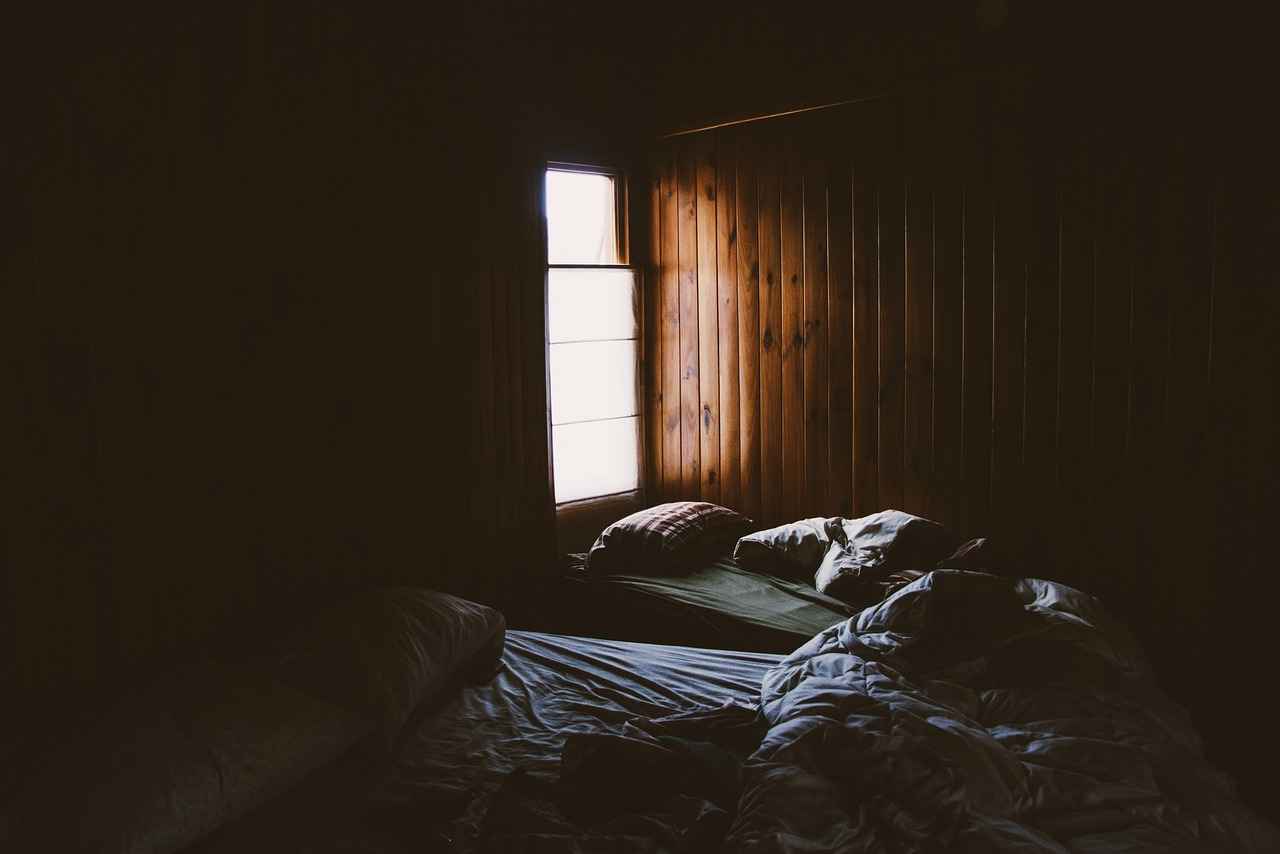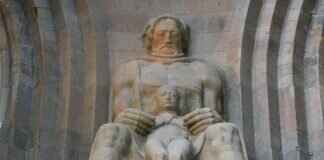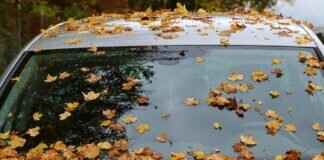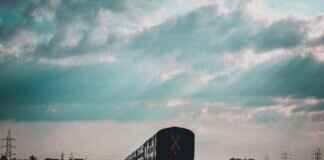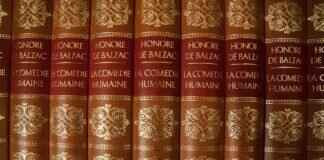Explore the latest trends and innovative designs in bed styles for 2025. This article covers unique aesthetics, materials, and functionalities that can transform your bedroom into a stylish sanctuary. With the continuous evolution of interior design, 2025 is set to showcase a variety of bed styles that cater to diverse preferences while enhancing comfort and functionality.
Trendy Bed Styles for 2025
- Minimalist Designs: Characterized by clean lines and uncluttered aesthetics, minimalist beds focus on simplicity and functionality.
- Bohemian Vibes: These beds incorporate vibrant colors, textures, and patterns, creating a cozy and inviting atmosphere.
- Mid-Century Modern: With their retro appeal, these beds blend classic designs with modern functionality, making them a popular choice.
Innovative Materials in Bed Design
- Sustainable Woods: The use of eco-friendly materials is on the rise, with sustainably sourced woods becoming a staple in bed manufacturing.
- Metal Alloys: These materials not only provide durability but also add a contemporary touch to bed designs.
- Eco-Friendly Fabrics: Bedding made from organic materials is gaining traction, ensuring a healthier sleep environment.
Eco-Friendly Bed Options
With an increasing awareness of environmental issues, eco-friendly beds made from sustainable materials are becoming a necessity. These beds not only minimize environmental impact but also promote a healthier sleeping environment by eliminating harmful chemicals.
Recycled Materials in Bed Frames
Many designers are now integrating recycled materials into bed frames, offering stylish and sustainable solutions. This trend not only helps reduce waste but also provides unique aesthetic options for consumers.
Organic Fabrics for Bedding
Choosing organic fabrics for bedding is essential for a healthier sleep experience. These materials are free from harmful chemicals and contribute to a more sustainable lifestyle.
Smart Beds: The Future of Sleep
The rise of smart beds is revolutionizing how we think about sleep. Equipped with technology that enhances sleep quality, these beds offer adjustable settings and sleep tracking features, making them an attractive option for tech-savvy consumers.
Color Trends for Bedroom Aesthetics
- Soft Pastels: Light colors create a serene atmosphere, perfect for relaxation.
- Deep Jewel Tones: Rich colors add depth and luxury to bedroom designs.
- Earthy Neutrals: These tones promote a calming environment, ideal for restful sleep.
Bold Accent Colors
Incorporating bold accent colors can create focal points in your bedroom, adding personality and vibrancy to your decor.
Calming Color Schemes
Calming color schemes are essential for promoting relaxation and tranquility, which are crucial for a restful sleep environment.
Functional Bed Designs for Small Spaces
As urban living spaces become more compact, innovative bed designs that maximize space efficiency are essential. These designs cater to the needs of those living in small apartments.
Murphy Beds: Space-Saving Solutions
Murphy beds are making a stylish comeback, providing practical solutions for maximizing floor space without sacrificing design.
Storage Beds: Dual Purpose Designs
Storage beds offer the perfect blend of functionality and modern design, providing additional space for linens and personal items.
Customizable Bed Options
The trend of customizable beds allows consumers to tailor designs, fabrics, and functionalities to their specific needs, ensuring a personalized sleeping experience.
Modular Bed Designs
Modular bed designs provide flexibility and personalization, enabling you to adapt your bed to changing lifestyle needs.
Personalized Bedding Choices
From color to texture, personalized bedding options can significantly enhance the overall aesthetic and comfort of your sleeping space, making it truly your own.
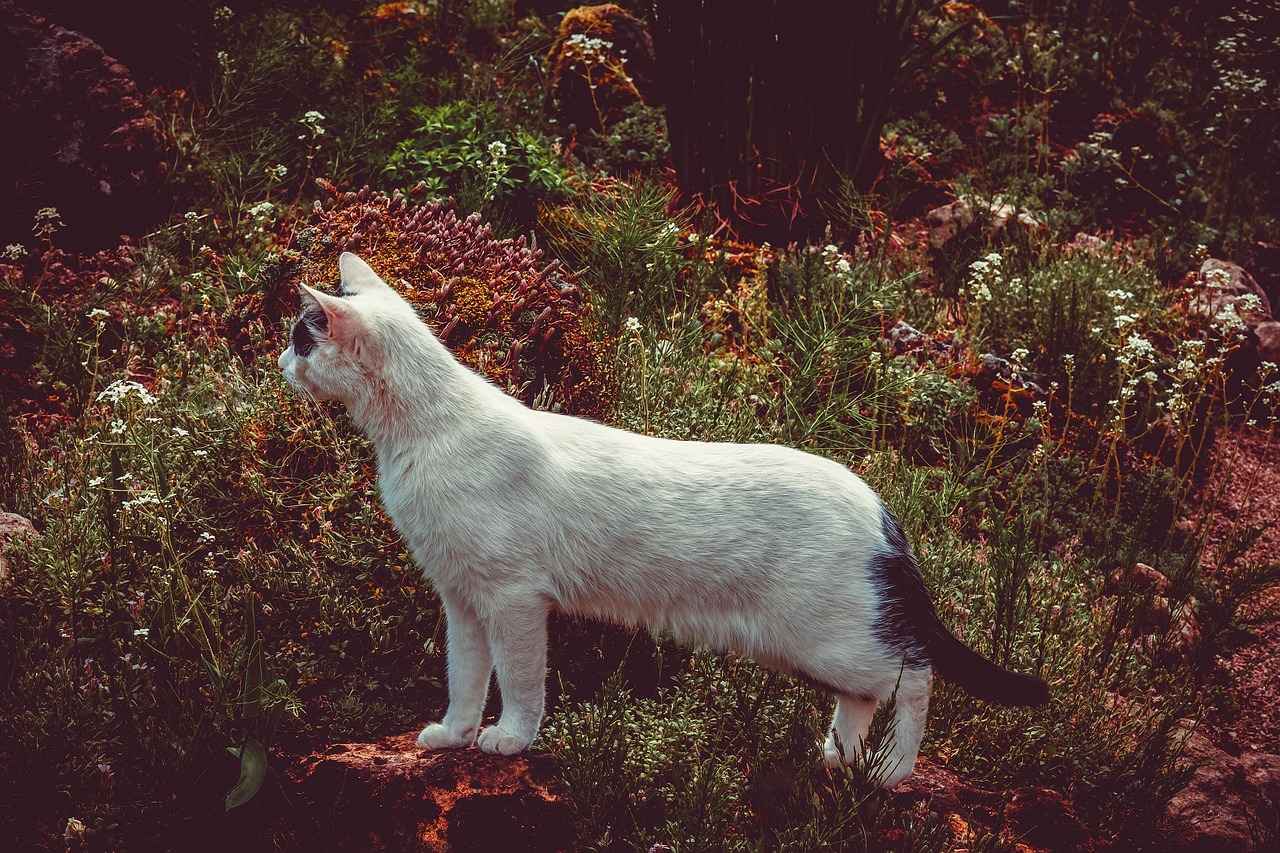
Trendy Bed Styles for 2025
As we look ahead to 2025, the world of interior design is evolving, and bed styles are no exception. This year promises a vibrant mix of aesthetics that cater to diverse tastes and lifestyles. From the sleek lines of minimalist designs to the rich textures of bohemian styles, and the timeless appeal of mid-century modern furniture, the options are both exciting and varied.
- Minimalist Designs: Minimalism continues to be a significant trend in 2025. Characterized by clean lines, neutral colors, and a focus on functionality, minimalist beds create a serene atmosphere. These designs often feature low profiles and built-in storage, making them perfect for those who appreciate simplicity without sacrificing style.
- Bohemian Styles: For those who crave a more eclectic look, bohemian bed styles are gaining traction. These designs embrace vibrant colors, layered textiles, and unique patterns. Incorporating elements like macramé headboards or wooden frames with intricate carvings, bohemian beds allow for personal expression and creativity in the bedroom.
- Mid-Century Modern: The mid-century modern aesthetic remains a favorite, with its emphasis on functionality and organic forms. Expect to see beds with tapered legs, bold colors, and a mix of materials like wood and metal. This style not only offers a nostalgic feel but also blends seamlessly with contemporary decor.
In addition to these styles, 2025 is set to showcase innovative combinations that merge different aesthetics. For example, a minimalist frame can be adorned with bohemian textiles, creating a unique fusion that reflects personal taste.
Moreover, the rise of customizable bed options allows consumers to tailor their choices, ensuring that every bed fits not just their aesthetic but also their functional needs. This trend empowers buyers to select everything from frame styles to fabric choices, creating a personalized sanctuary.
As we explore these trends, it’s essential to consider the functional aspects of bed design in 2025. For instance, many modern beds are designed with built-in storage solutions, catering to the needs of urban dwellers who may have limited space. This adaptability is crucial as more people seek to maximize their living environments.
In conclusion, the bed styles set to dominate the market in 2025 reflect a blend of aesthetics and functionalities that cater to a wide range of preferences. Whether you lean towards the simplicity of minimalism, the vibrancy of bohemian designs, or the timeless charm of mid-century modern, there’s something for everyone in the evolving landscape of bedroom decor. As these trends unfold, they promise to transform our sleeping spaces into stylish, comfortable retreats.
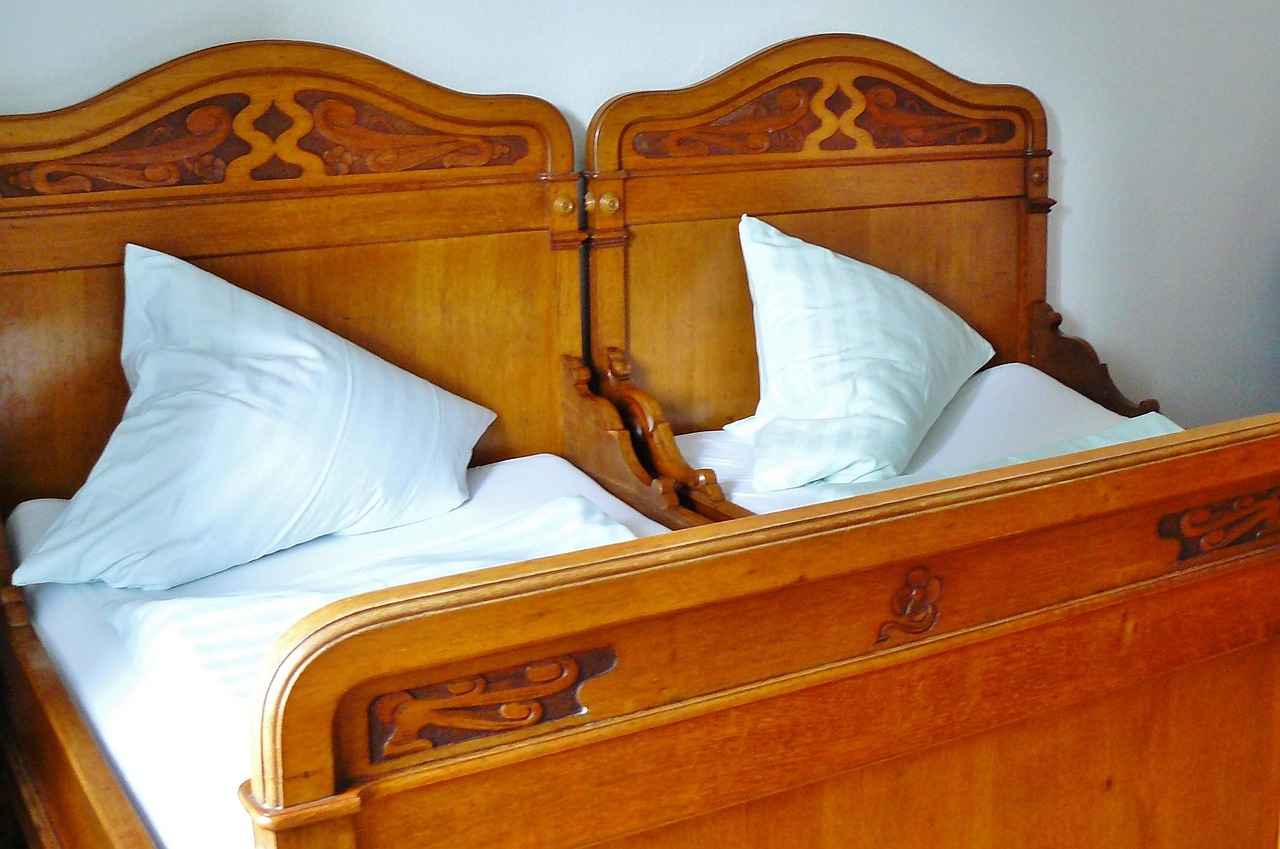
Innovative Materials in Bed Design
In the ever-evolving world of interior design, bed construction has seen remarkable advancements, particularly in the materials used. As we approach 2025, it’s essential to explore the innovative materials that are not only enhancing the durability and aesthetics of beds but also contributing to a more sustainable future.
One of the most significant trends in bed design is the use of sustainable woods. These materials are sourced from responsibly managed forests, ensuring that the ecological balance is maintained. Popular choices include bamboo, which is known for its rapid growth and strength, and reclaimed wood, which adds a rustic charm while reducing waste. These woods not only provide a unique aesthetic but also offer exceptional durability, making them ideal for long-lasting bed frames.
Another exciting development in bed design is the incorporation of metal alloys. These materials are increasingly favored for their strength and lightweight properties. Alloys such as aluminum and steel are not only robust but also allow for sleek, modern designs that can complement various bedroom styles. The use of metal in bed frames can create a striking contrast with wooden elements, adding depth and interest to the overall design.
When it comes to bedding, the trend is shifting towards eco-friendly fabrics. Materials such as organic cotton, linen, and Tencel are gaining popularity due to their sustainability and comfort. These fabrics are produced without harmful chemicals, making them a healthier choice for your sleeping environment. Additionally, their breathability and softness enhance the overall sleeping experience, promoting better rest and relaxation.
- Durability: Many of these materials are designed to withstand wear and tear, ensuring that your bed remains in excellent condition for years.
- Aesthetics: The combination of sustainable woods, metal alloys, and eco-friendly fabrics allows for unique designs that can fit any decor style.
- Environmental Impact: Using sustainable materials helps reduce the carbon footprint associated with traditional bed manufacturing.
In addition to new materials, the use of recycled materials is becoming increasingly common in bed frames. Manufacturers are creatively integrating materials like recycled plastics and metals into their designs, offering stylish options that do not compromise on quality or sustainability. This trend not only helps reduce landfill waste but also encourages a circular economy in the furniture industry.
As we look forward to 2025, the emphasis on innovative materials in bed design is clear. With a focus on sustainability, durability, and aesthetics, these materials are transforming how we think about our sleeping spaces. By opting for beds made from sustainable woods, metal alloys, and eco-friendly fabrics, consumers can enjoy a beautiful and functional bedroom while also contributing to a healthier planet.
Eco-Friendly Bed Options
In recent years, the demand for has surged as consumers become increasingly aware of their environmental footprint. This trend reflects a broader shift towards sustainability in home decor and furnishings. Eco-friendly beds are crafted from sustainable materials that not only reduce environmental impact but also contribute to a healthier sleeping environment.
One of the key factors driving this trend is the use of renewable resources. Many manufacturers are now sourcing materials such as bamboo, reclaimed wood, and natural latex, which are not only sustainable but also offer durability and comfort. Bamboo, for instance, grows rapidly and requires minimal resources to cultivate, making it an excellent choice for eco-conscious consumers.
Recycled materials are also gaining popularity in bed frame construction. By incorporating materials that have been repurposed, manufacturers are able to minimize waste and reduce the demand for new resources. This approach not only lessens the environmental impact but also results in unique designs that appeal to those looking for something different.
| Material | Benefits |
|---|---|
| Bamboo | Renewable, durable, hypoallergenic |
| Reclaimed Wood | Unique aesthetics, reduces deforestation |
| Natural Latex | Biodegradable, breathable, supportive |
Another significant aspect of eco-friendly beds is the use of organic fabrics for bedding. Unlike conventional fabrics, organic options are grown without the use of harmful pesticides and chemicals. This not only benefits the environment but also ensures a safer sleep environment for you and your family. Organic cotton and linen are popular choices that provide comfort without compromising on health.
- Health Benefits: Organic materials reduce exposure to toxic chemicals.
- Comfort: Natural fibers are breathable and moisture-wicking.
- Durability: High-quality organic fabrics often last longer than conventional options.
Moreover, the trend towards eco-friendly beds aligns with a growing awareness of the importance of sleep quality. By choosing beds made from sustainable materials, consumers are not only making a choice that is better for the planet but also investing in their own health and well-being. Studies have shown that a clean and chemical-free sleeping environment can lead to improved sleep quality and overall health.
As the market for eco-friendly beds continues to expand, consumers are encouraged to look for certifications such as Global Organic Textile Standard (GOTS) or Forest Stewardship Council (FSC) to ensure that the products they purchase meet rigorous sustainability standards. These certifications provide assurance that the materials used are not only eco-friendly but also ethically sourced.
In conclusion, the rising trend of eco-friendly beds signifies a shift towards more sustainable living practices. By opting for beds made from renewable and recycled materials, as well as organic fabrics, consumers can contribute to a healthier planet while enhancing their own sleep experience. As awareness grows, the choices available in the market will likely continue to expand, offering even more options for those looking to make environmentally conscious decisions.
Recycled Materials in Bed Frames
As the world moves towards a more sustainable future, the integration of recycled materials into bed frames is becoming a defining trend for 2025. This innovative approach not only contributes to environmental conservation but also adds a unique aesthetic appeal to bedroom designs. By utilizing materials that were once considered waste, designers are crafting stunning bed frames that embody both style and sustainability.
One of the most exciting aspects of using recycled materials is the opportunity for creativity. Designers are experimenting with a variety of materials, including reclaimed wood, recycled metal, and even repurposed textiles. For instance, reclaimed wood from old barns or furniture can be transformed into beautiful bed frames that showcase the natural grain and character of the wood. This not only reduces the demand for new timber but also provides a unique story behind each piece.
Additionally, recycled metal is being used to create modern and industrial-style bed frames. These frames are often lightweight yet durable, offering a contemporary look that appeals to many consumers. The use of recycled metal not only minimizes waste but also provides a sleek, polished finish that can enhance the overall decor of a bedroom.
Moreover, the integration of recycled materials extends beyond the frame itself. Many manufacturers are now offering bedding options made from eco-friendly fabrics derived from recycled plastics. These fabrics are not only soft and comfortable but also contribute to reducing plastic waste in landfills and oceans. By choosing beds and bedding made from recycled materials, consumers can actively participate in promoting a circular economy.
In terms of design, the versatility of recycled materials allows for a wide range of styles. From rustic to modern, the possibilities are endless. For example, a bed frame made from reclaimed wood can be paired with contemporary bedding, creating a striking juxtaposition that appeals to a variety of tastes. This fusion of styles is particularly popular among younger consumers who are looking for unique and personalized spaces.
Furthermore, the sustainability aspect of using recycled materials resonates with a growing demographic that prioritizes eco-conscious living. As more people become aware of their environmental impact, the demand for sustainable products continues to rise. Bed frames made from recycled materials not only meet this demand but also serve as a statement piece in any bedroom, reflecting the owner’s commitment to sustainability.
In conclusion, the creative integration of recycled materials into bed frames is revolutionizing the way we think about bedroom design in 2025. This trend not only enhances the aesthetic appeal of bed frames but also promotes a more sustainable lifestyle. As consumers increasingly seek out products that align with their values, the use of recycled materials in bed frames will continue to gain traction, offering both style and sustainability for years to come.
Organic Fabrics for Bedding
are gaining popularity among consumers who are increasingly aware of the impact of their choices on health and the environment. These fabrics, made from natural fibers such as cotton, linen, and hemp, are cultivated without the use of harmful pesticides, synthetic fertilizers, or genetically modified organisms (GMOs). This results in a product that is not only better for the planet but also safer for your home and family.
One of the most significant benefits of organic bedding is the absence of harmful chemicals. Traditional bedding materials often undergo extensive processing that can introduce toxic substances, including formaldehyde and other volatile organic compounds (VOCs). These chemicals can contribute to indoor air pollution and may cause various health issues, including respiratory problems and skin irritations. By choosing organic fabrics, you can create a healthier sleep environment, free from these potentially harmful agents.
Furthermore, organic fabrics are often softer and more breathable than their conventional counterparts. This is because they are made from natural fibers that allow for better air circulation, helping to regulate body temperature during sleep. A comfortable sleeping temperature is essential for a restful night, and organic bedding can help achieve this balance. Additionally, many people find that organic fabrics become softer with each wash, enhancing the overall comfort and feel of their bedding.
Another crucial aspect of organic fabrics is their sustainability. The production of organic textiles typically involves more environmentally friendly practices, such as crop rotation and reduced water usage. This not only preserves the health of the soil but also minimizes the environmental footprint associated with textile production. By opting for organic bedding, consumers can contribute to a more sustainable future while enjoying the benefits of high-quality materials.
Moreover, organic bedding is often produced under fair labor conditions, ensuring that workers are treated ethically and compensated fairly. This ethical aspect resonates with many consumers who are looking to make responsible purchasing decisions that align with their values. Supporting brands that prioritize sustainability and fair labor practices not only benefits the environment but also promotes social responsibility.
When it comes to maintenance, organic fabrics are generally easy to care for. Most organic bedding can be machine washed and dried, making it convenient for everyday use. However, it is essential to follow the care instructions provided by the manufacturer to maintain the integrity of the fibers and colors. Choosing organic bedding can be a smart investment, as these high-quality fabrics are often more durable and long-lasting than conventional options.
In summary, offer numerous benefits that contribute to a healthier sleep experience. From the elimination of harmful chemicals to the use of sustainable materials and ethical production practices, organic bedding is an excellent choice for those looking to enhance their sleep environment while being mindful of their impact on the planet. As more consumers become aware of these advantages, the demand for organic bedding is likely to continue growing, paving the way for a more sustainable and health-conscious future in home textiles.
Smart Beds: The Future of Sleep
As technology continues to evolve, the concept of sleep is being revolutionized by the introduction of smart beds. These innovative sleep solutions are not just a trend; they represent the future of how we approach rest and rejuvenation. Smart beds are equipped with advanced technology designed to enhance sleep quality through various adjustable settings and sleep tracking features.
One of the primary attractions of smart beds is their ability to customize sleep experiences. With adjustable firmness levels, users can tailor their mattress to their personal comfort preferences. Whether you prefer a firmer surface for support or a softer feel for plush comfort, smart beds can accommodate these needs at the touch of a button. This level of personalization is especially beneficial for couples who may have differing sleep preferences.
Another significant feature of smart beds is their sleep tracking capabilities. Many models come equipped with sensors that monitor various aspects of your sleep, including duration, quality, and even your heart rate. This data is then analyzed and presented through a connected app, providing users with insights into their sleep patterns. By understanding how well they sleep, individuals can make informed adjustments to their routines, leading to improved overall health.
In addition to tracking sleep, smart beds often include features such as temperature control. Maintaining an optimal sleeping temperature is crucial for quality rest. Many smart beds allow users to adjust the temperature of their mattress, ensuring that they stay comfortable throughout the night. This can be particularly beneficial for those who tend to overheat or feel cold during sleep.
Furthermore, smart beds can integrate with other smart home devices, creating a seamless sleeping environment. For instance, they can be programmed to adjust lighting or temperature in the bedroom as you prepare for sleep, enhancing relaxation and promoting a smooth transition into rest. The ability to control these features through voice commands or mobile applications adds an extra layer of convenience.
As the market for smart beds continues to expand, manufacturers are focusing on affordability and accessibility. While some high-end models can be quite expensive, there are now numerous options available at various price points, making smart beds accessible to a broader audience. This shift is encouraging more people to invest in their sleep health, recognizing the long-term benefits that quality sleep can provide.
Moreover, the rise of smart beds aligns with a growing awareness of the importance of sleep in overall health and wellness. Studies have shown that quality sleep can lead to improved cognitive function, better mood regulation, and enhanced physical health. As more consumers prioritize their sleep quality, smart beds are becoming a key component of a healthy lifestyle.
In conclusion, the popularity of smart beds is on the rise as they offer innovative solutions to enhance sleep quality. With features like adjustable settings, sleep tracking, and smart home integration, these beds are designed to meet the diverse needs of modern sleepers. As technology continues to advance, we can expect smart beds to become a staple in bedrooms, transforming the way we experience sleep.

Color Trends for Bedroom Aesthetics
As we approach 2025, the world of interior design is set to embrace an exciting array of color palettes that will redefine bedroom aesthetics. The colors chosen for a bedroom can significantly influence the atmosphere, mood, and overall comfort of the space. In this article, we will explore the key color trends that will dominate bedroom designs, focusing on soft pastels, deep jewel tones, and earthy neutrals.
Soft pastels are expected to be a leading choice for bedroom aesthetics in 2025. These gentle hues, including shades like pale pink, mint green, and baby blue, evoke a sense of tranquility and relaxation, making them ideal for a restful environment. Incorporating these colors can be achieved through wall paint, bedding, or decorative accents. The use of soft pastels creates a serene retreat, perfect for unwinding after a long day.
On the contrary, deep jewel tones such as emerald green, sapphire blue, and rich burgundy are set to make a bold statement in bedroom design. These colors not only add a touch of luxury but also create a cozy and inviting atmosphere. They can be utilized as accent walls, in furniture pieces, or through textiles like curtains and rugs. The contrast between jewel tones and lighter elements can create a visually striking balance, enhancing the overall aesthetic of the room.
As sustainability continues to be a priority, earthy neutrals such as taupe, beige, and warm gray will play a crucial role in bedroom color schemes. These colors reflect natural elements and promote a sense of grounding and stability. They pair beautifully with both soft pastels and deep jewel tones, allowing for versatile design options. Using earthy neutrals in furniture and decor can help create a cohesive and harmonious space that feels both inviting and calming.
- Layering Pastels and Jewel Tones: Combine soft pastels with jewel tones for a sophisticated look that balances softness with richness.
- Accent Walls: Use deep jewel tones for an accent wall while keeping the rest of the room in earthy neutrals or soft pastels.
- Textile Mix: Incorporate various textures in bedding and cushions to enhance the color palette, adding depth and interest.
As we look ahead to 2025, the color trends in bedroom aesthetics promise to transform our sleeping spaces into personalized sanctuaries. By embracing soft pastels, deep jewel tones, and earthy neutrals, homeowners can create environments that reflect their individual styles while promoting relaxation and comfort. Whether you prefer the calming effects of pastels or the boldness of jewel tones, the key is to create a cohesive color scheme that resonates with your personal aesthetic.
Bold Accent Colors
When it comes to bedroom decor, the use of can dramatically transform the space, creating focal points that not only enhance aesthetics but also reflect your personal style. In 2025, the trend of incorporating vibrant hues into bed designs is gaining momentum, allowing homeowners to express their individuality while making a statement.
Why Choose Bold Accent Colors? The beauty of bold colors lies in their ability to evoke emotions and set the mood of a room. When strategically placed, these colors can draw the eye and create a sense of harmony within your bedroom. For instance, a deep navy blue headboard can serve as a stunning contrast against softer, neutral walls, establishing a captivating focal point. This technique not only adds visual interest but also helps anchor the design of the room.
How to Incorporate Bold Colors
- Accent Pillows and Throws: One of the easiest ways to introduce bold colors is through accessories. Choose vibrant throw pillows or blankets that complement your bedding. This allows for easy updates as trends change.
- Bed Frames: Consider a bed frame in a striking color, such as emerald green or rich burgundy. This can create a luxurious feel and serve as the centerpiece of the room.
- Wall Art: Incorporate artwork that features bold colors to tie the room together. This can enhance the overall theme and create a cohesive look.
Color Combinations to Consider
Mixing bold colors with softer shades can yield stunning results. For example, pairing a vibrant orange with muted grays can create a balanced and inviting atmosphere. Additionally, combining complementary colors, such as teal and coral, can energize the space while maintaining a sense of harmony.
Psychological Effects of Colors
Colors can influence mood and perception. For instance, yellow is often associated with happiness and can invigorate your space, while blue is known for its calming effects. Understanding the psychological impact of colors can guide your choices in creating a bedroom that promotes relaxation and comfort.
Trends in Bold Color Usage
In 2025, we are seeing a shift towards more daring color choices in bedroom designs. Jewel tones, such as amethyst and sapphire, are becoming increasingly popular, offering a touch of luxury. Additionally, earthy tones mixed with bold accents, like terracotta paired with vibrant teal, are a trend that embodies both warmth and personality.
Conclusion
Incorporating bold accent colors into bed design is an effective way to add personality and create focal points in your bedroom. By carefully selecting colors and combinations, you can transform your sleeping space into a stylish sanctuary that reflects your unique taste and enhances your overall well-being.
Calming Color Schemes
When it comes to creating a restful sleep environment, the choice of color scheme plays a pivotal role. not only enhance the aesthetic appeal of a bedroom but also promote relaxation and tranquility, essential elements for a good night’s sleep. In this section, we will explore various color palettes that can transform your bedroom into a serene sanctuary.
- Soft Blues and Greens: These colors are known for their soothing properties. Soft shades of blue, reminiscent of the sky and ocean, can evoke feelings of calmness. Similarly, gentle greens, like those found in nature, promote a sense of peace and harmony.
- Warm Neutrals: Shades like beige, taupe, and soft whites create a warm and inviting atmosphere. These colors can make a space feel cozy while providing a neutral backdrop that allows for personal expression through decor.
- Pastel Tones: Light pastels, such as pale pink, lavender, and mint, can add a touch of color without overwhelming the senses. These hues are perfect for creating a soft, romantic ambience that encourages relaxation.
- Earthy Tones: Colors inspired by nature, such as terracotta, sandy beige, and muted browns, can ground a space. These shades help create a tranquil environment reminiscent of a peaceful outdoor setting.
In addition to selecting the right colors, the way they are applied can also impact the overall feel of the bedroom. Here are some tips for incorporating calming color schemes effectively:
- Accent Walls: Consider painting one wall in a calming color to create a focal point. This can add depth to the room while keeping the overall feel serene.
- Complementary Textiles: Use bedding, curtains, and rugs in shades that complement your wall colors. This creates a cohesive look that enhances the calming effect.
- Artwork and Decor: Choose artwork that features calming colors or nature themes. This not only ties the room together but also reinforces the tranquil atmosphere.
- Lighting Considerations: Soft, warm lighting can enhance the calming effect of your color scheme. Consider using dimmable lights or lamps with soft shades to create a soothing ambiance.
When selecting a color scheme, it’s essential to consider personal preferences and the overall style of the bedroom. Some individuals may find that certain colors evoke specific emotions or memories, influencing their choice. Ultimately, the goal is to create a space that feels peaceful and restorative.
In summary, incorporating into your bedroom design can significantly enhance your relaxation and sleep quality. By selecting soft blues, warm neutrals, pastel tones, or earthy hues, and applying them thoughtfully through walls, textiles, and decor, you can create a tranquil environment that promotes restful sleep. Embrace the power of color to transform your bedroom into a serene sanctuary, conducive to relaxation and rejuvenation.
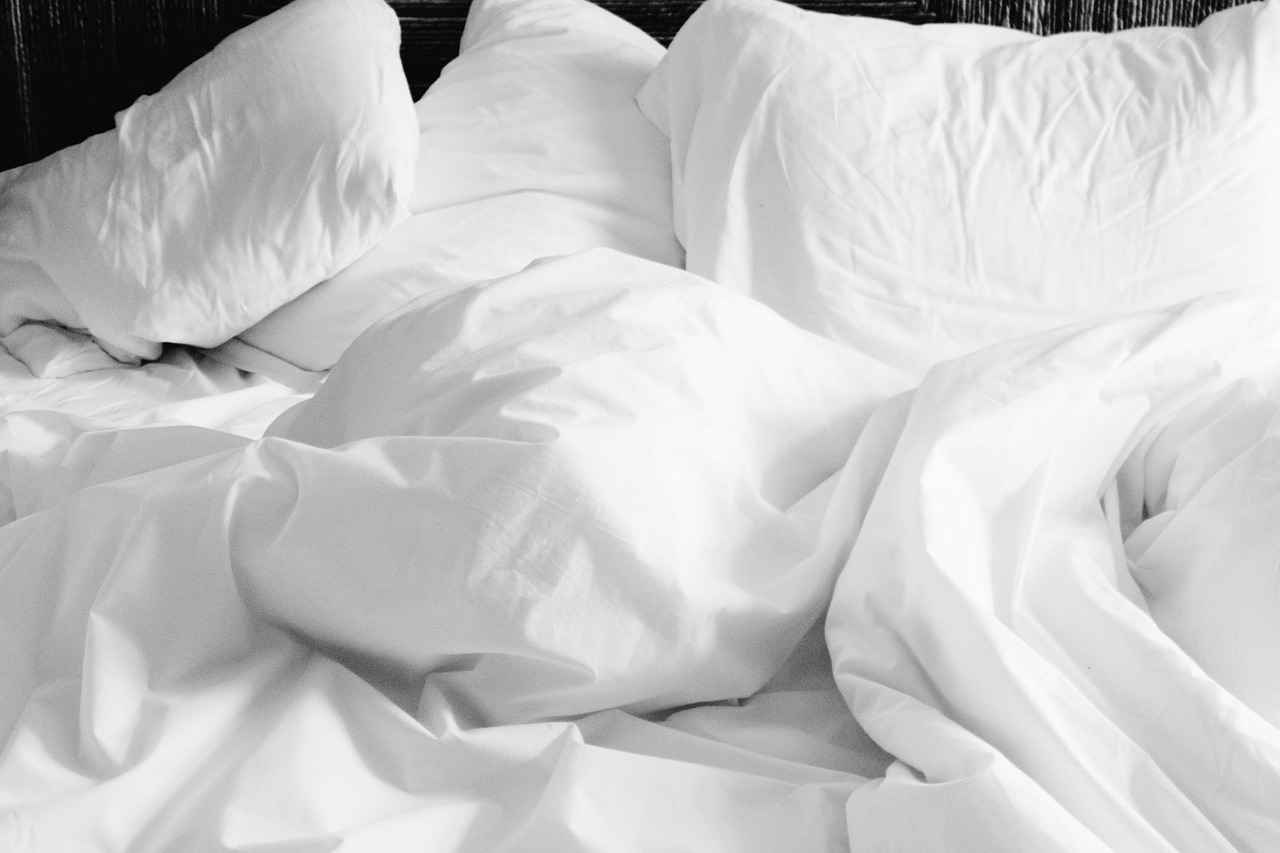
Functional Bed Designs for Small Spaces
In today’s urban landscape, where space is often at a premium, the demand for functional bed designs has never been greater. These innovative solutions not only provide a comfortable sleeping area but also maximize the utility of compact spaces, making them ideal for small apartments and cozy bedrooms. This article delves into various bed designs that cater specifically to space efficiency without compromising on style or comfort.
Murphy beds, also known as wall beds, have surged in popularity as an ingenious way to save space. When not in use, these beds can be folded up against the wall, allowing for additional floor space during the day. Modern Murphy beds come in a variety of styles and finishes, making them a stylish addition to any room. They can be integrated with shelving or desks, providing a multifunctional solution for small living areas.
Storage beds are another fantastic option for those looking to optimize their living space. These beds typically feature built-in drawers or compartments beneath the mattress, perfect for stowing away linens, clothing, or other personal items. This design not only reduces clutter but also eliminates the need for additional furniture pieces, making it a practical choice for compact environments.
For families or roommates, bunk beds offer a creative way to maximize sleeping arrangements while conserving space. Modern bunk beds come in various configurations, including L-shaped designs that incorporate a desk or play area underneath. This makes them ideal for children’s rooms or guest accommodations, providing functionality and fun.
Loft beds take space-saving to new heights—literally! By elevating the bed, these designs free up valuable floor space for other uses. The area beneath a loft bed can be transformed into a cozy reading nook, a workspace, or even additional storage. This versatility makes loft beds a popular choice among college students and young professionals living in small apartments.
Daybeds offer a unique blend of seating and sleeping options, making them an excellent choice for small spaces. During the day, they serve as a stylish sofa or lounge area, while at night, they can easily be converted into a comfortable bed. Available in various styles, from traditional to contemporary, daybeds can complement any decor while providing functionality.
As the trend towards personalization continues to grow, customizable modular beds have emerged as a popular choice. These beds allow users to configure their sleeping arrangements according to their specific needs, whether it’s adjusting the height, adding storage, or incorporating built-in lighting. This flexibility makes them perfect for adapting to changing lifestyle demands.
Many modern bed designs incorporate space-saving furniture combinations, such as beds with integrated desks or benches. These multifunctional pieces not only save space but also enhance the overall aesthetic of the room. By combining essential furniture items, homeowners can create a cohesive and stylish environment that maximizes both form and function.
In conclusion, the evolution of bed designs for small spaces has led to a variety of innovative options that prioritize both style and practicality. From Murphy beds to customizable modular designs, these functional solutions cater to the needs of urban dwellers seeking to make the most of their limited living areas. By choosing the right bed design, individuals can create a comfortable and efficient sleeping environment that enhances their overall quality of life.
Murphy Beds: Space-Saving Solutions
In today’s fast-paced urban environment, where living spaces are becoming increasingly compact, the Murphy bed is experiencing a remarkable resurgence. Once viewed as a relic of the past, these versatile beds are now celebrated for their stylish designs and practical functionality. This article explores how Murphy beds are transforming small living spaces into multifunctional havens.
Murphy beds, also known as wall beds, are ingeniously designed to fold up against the wall, freeing up valuable floor space when not in use. This feature is particularly advantageous in small apartments or studio spaces where every square foot counts. By day, your living area can serve multiple purposes, such as a home office or a cozy lounge, and by night, it can seamlessly convert into a comfortable sleeping area.
The modern Murphy bed has evolved significantly in terms of aesthetics. Today, you can find a wide array of designs that cater to various interior styles—from sleek, minimalist options to more ornate, traditional styles. Many contemporary Murphy beds come with built-in shelving or cabinetry, allowing for additional storage solutions. This dual functionality not only maximizes space but also enhances the overall decor of your room.
One of the primary concerns for potential buyers is the ease of use. Modern Murphy beds are designed with user-friendliness in mind. Most models feature a simple pull-down mechanism, allowing you to convert your space effortlessly. Additionally, installation has become more straightforward, with many manufacturers offering comprehensive guides and support. This accessibility makes Murphy beds an attractive option for renters and homeowners alike.
Murphy beds are not just limited to bedrooms. They can be integrated into various spaces throughout your home. For example, a Murphy bed can be placed in a home office, allowing you to transform your workspace into a guest room when needed. This versatility makes them an ideal solution for those who frequently host visitors or require adaptable living spaces.
As sustainability becomes a priority for many consumers, eco-friendly Murphy bed options are also gaining popularity. Many manufacturers are now using sustainable materials, such as reclaimed wood and non-toxic finishes, to create their beds. By choosing an eco-friendly Murphy bed, you not only save space but also contribute to a healthier planet.
Investing in a Murphy bed can also be a cost-effective solution in the long run. By maximizing your living space, you may find that you can forgo the need for larger apartments or homes, which can save you money on rent or mortgage payments. Furthermore, the durability and quality of many modern Murphy beds ensure they will last for years, making them a wise investment.
In conclusion, Murphy beds are making a significant comeback as a stylish and practical solution for maximizing floor space in urban living. With their innovative designs, ease of use, and versatility, they cater to the needs of modern homeowners and renters alike. Whether you live in a small apartment or simply want to optimize your living space, a Murphy bed may be the perfect addition to your home.
Storage Beds: Dual Purpose Designs
In today’s fast-paced world, maximizing space without sacrificing style has become essential, especially in urban living environments. One innovative solution that has gained popularity is the storage bed. These beds are designed not just for sleeping but also for providing additional storage, making them a perfect blend of functionality and modern design.
Storage beds come in various styles, allowing homeowners to choose options that complement their bedroom decor while addressing their storage needs. Whether you prefer a minimalist aesthetic or a more ornate design, there is a storage bed that fits seamlessly into your space.
- Maximized Space: One of the most significant advantages of storage beds is their ability to utilize otherwise wasted space. With built-in drawers or compartments, these beds can hold linens, clothing, and personal items, reducing clutter in your bedroom.
- Organizational Efficiency: Keeping your items organized is easier with storage beds. They provide a designated space for your belongings, making it simple to find what you need without rummaging through piles of clothes or linens.
- Stylish Designs: Modern storage beds are not only practical but also aesthetically pleasing. Many designs incorporate sleek lines and contemporary materials, ensuring that your bed is a focal point in the room.
- Versatility: Storage beds are versatile and can adapt to various needs. Whether you need space for seasonal clothing, extra bedding, or even books and electronics, these beds can accommodate it all.
When it comes to selecting a storage bed, there are several types to consider:
- Platform Storage Beds: These beds feature a solid base with built-in drawers on either side or at the foot of the bed, providing ample storage without the need for a box spring.
- Lift-Up Storage Beds: Ideal for those who prefer a clean look, these beds have a mattress that lifts to reveal a spacious storage area underneath, perfect for larger items.
- Divan Beds: Often upholstered, divan beds come with integrated drawers and can be customized in various fabrics and colors to match your decor.
When selecting a storage bed, consider the following factors:
- Size: Ensure the bed fits your room dimensions while providing enough storage space for your needs.
- Storage Capacity: Assess what items you intend to store and choose a bed that accommodates those items effectively.
- Style Compatibility: Select a design that complements your existing bedroom decor to maintain a cohesive look.
Storage beds are an excellent solution for those looking to optimize their bedroom space while maintaining a stylish appearance. By understanding their benefits and types, you can make an informed decision that enhances both the functionality and aesthetics of your sleeping area.
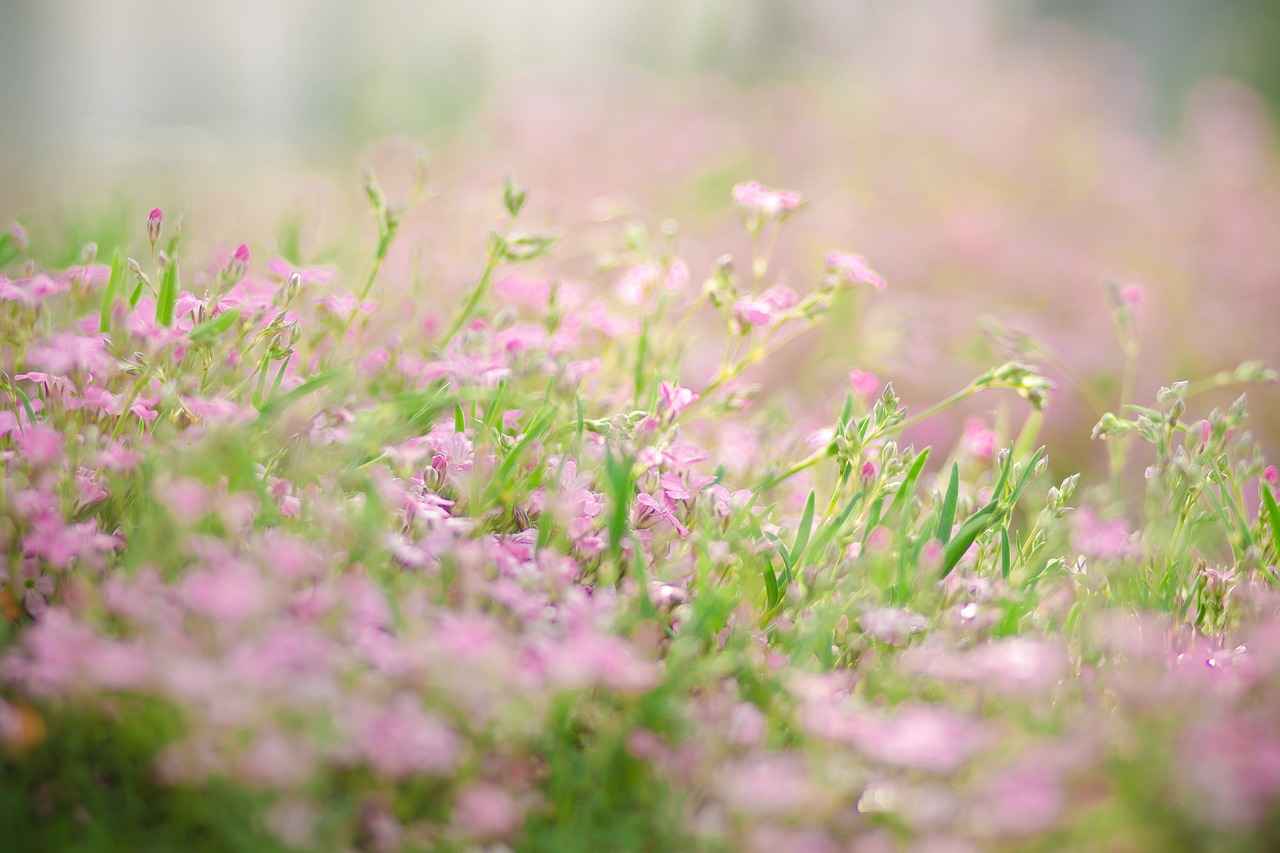
Customizable Bed Options
In today’s rapidly evolving home decor landscape, the concept of customizable beds has gained significant traction. Consumers are increasingly seeking options that allow them to tailor their sleeping environments to their unique preferences and needs. This trend not only enhances comfort but also adds a personal touch to the bedroom.
Customizable beds offer a multitude of advantages, including:
- Personalization: Consumers can choose from a variety of designs, materials, and functionalities that suit their individual tastes.
- Enhanced Comfort: Tailoring the firmness of the mattress and the height of the bed can significantly improve sleep quality.
- Space Efficiency: Customizable designs can be optimized for small spaces, making them ideal for urban living.
One of the most exciting innovations in the realm of customizable beds is the rise of modular bed designs. These beds consist of separate components that can be rearranged or replaced based on the user’s changing needs. For instance, a modular bed can be transformed from a simple platform to a more elaborate setup with built-in storage or additional sleeping surfaces. This flexibility ensures that the bed adapts to various lifestyle changes, whether it’s accommodating a growing family or adjusting to a smaller living space.
Another significant aspect of customizable beds is the array of personalized bedding choices available. Consumers can select from a wide range of fabrics, colors, and textures that not only enhance the aesthetic appeal of their bedroom but also contribute to a more comfortable sleeping experience. For example, opting for hypoallergenic materials can be beneficial for those with allergies, while luxurious fabrics like silk or high-thread-count cotton can elevate the overall comfort level.
As technology continues to advance, many customizable beds now come equipped with smart features. These include adjustable bases that allow users to modify the angle of their bed for optimal comfort. Some models even incorporate sleep tracking technology, providing insights into sleep patterns and suggesting improvements for better rest. This integration of technology into customizable beds not only enhances convenience but also promotes a healthier lifestyle.
With an increasing focus on sustainability, many consumers are looking for eco-friendly options in customizable beds. Brands are now offering beds made from sustainable materials, such as reclaimed wood and organic fabrics. This shift not only reduces environmental impact but also caters to a growing demographic that prioritizes eco-conscious living. Customizable beds that incorporate recycled materials or sustainable production practices are becoming more popular, aligning with the values of modern consumers.
As the demand for customizable beds continues to rise, consumers are empowered to create their ideal sleeping environments. By offering a range of options in design, functionality, and materials, customizable beds cater to diverse preferences and needs. Whether it’s through modular designs, personalized bedding, or the integration of smart technology, the future of bed design is all about individuality and comfort. This trend not only enhances the aesthetic appeal of bedrooms but also promotes better sleep and overall well-being.
Modular Bed Designs
In today’s fast-paced world, the need for adaptability and personalization in home furnishings has never been more crucial. are at the forefront of this trend, offering a unique solution that caters to various lifestyle needs and preferences. These innovative bed systems allow users to customize their sleeping arrangements according to their changing circumstances, whether it’s accommodating a growing family, optimizing space in a small apartment, or simply refreshing the bedroom aesthetic.
Modular beds are comprised of individual components that can be rearranged, added, or removed based on user requirements. This flexibility means that as your life evolves—be it through moving to a new home, welcoming a child, or transitioning to a home office—the bed can adapt accordingly. With options ranging from adjustable headboards to detachable side tables, the possibilities are nearly endless.
- Space Optimization: Modular beds can be tailored to fit any room size. For instance, when hosting guests, additional components can be integrated to create a larger sleeping area.
- Style Adaptability: Change the look of your bedroom by switching out colors or materials in the modular components, ensuring your bed always matches your home decor.
- Functionality: Many modular designs come with built-in storage solutions, allowing for a decluttered living space without sacrificing style.
One of the most appealing aspects of modular beds is the range of customizable features available. Consumers can choose from various styles, materials, and colors to create a bed that reflects their personal taste. For example, opting for a sustainable wood finish can enhance the eco-friendliness of the design, while luxurious fabrics can elevate the comfort level.
As life circumstances change, so too can the configuration of a modular bed. For example, a couple may start with a standard queen bed and later expand it to a king-size setup as their family grows. Alternatively, individuals transitioning from a shared living space to a solo apartment can easily modify their bed to fit the new environment, making modular designs an investment that evolves alongside the owner.
Modern modular beds are increasingly incorporating technology to enhance user experience. Features such as integrated lighting, charging ports, and even smart mattress technology that adjusts firmness based on sleep patterns are becoming commonplace. This integration not only adds functionality but also contributes to a more personalized sleeping environment.
In summary, modular bed designs represent a significant advancement in the realm of bedroom furnishings. Their inherent flexibility and personalization options allow for a tailored sleeping experience that can adapt to various lifestyle needs. As trends continue to evolve, these beds stand out as a practical and stylish solution for anyone seeking to create a dynamic and functional living space.
Personalized Bedding Choices
When it comes to creating a cozy and inviting bedroom, play a pivotal role. The selection of bedding is not merely about functionality; it serves as a canvas for expressing your style and enhancing the overall atmosphere of your sleeping space. From color to texture, every element can significantly contribute to both aesthetic appeal and comfort.
One of the first considerations in personalized bedding is color selection. The colors you choose can evoke different emotions and set the tone for your bedroom. For example, soft pastels can create a tranquil environment, while bold colors can energize the space. By selecting bedding in shades that resonate with your personality, you can transform your room into a reflection of who you are. Additionally, consider incorporating accent pillows or throws in contrasting colors to add depth and visual interest.
Texture is another essential aspect of personalized bedding. Different fabrics can enhance both the look and feel of your bed. Luxurious materials like silk or velvet can add a touch of elegance, while breathable cotton or linen can promote a more casual, relaxed vibe. Mixing textures can also create a layered effect, making your bed more inviting. For instance, pairing a smooth duvet with a chunky knit throw can provide a beautiful contrast that enhances the visual appeal of your bedding.
Moreover, the choice of bedding patterns can further personalize your sleeping space. Floral prints, geometric designs, or even solid colors can all contribute to the overall aesthetic. By selecting patterns that align with your personal taste and the existing decor of your bedroom, you can create a cohesive and harmonious look. Consider using a mix of patterns in your bedding, such as a patterned duvet with solid-colored sheets, to add visual intrigue without overwhelming the space.
Another aspect to consider is the functionality of your bedding. Personalized bedding options can also include the choice of custom sizes or shapes to fit unique bed frames or personal preferences. For instance, if you have a king-sized bed with an irregular shape, opting for custom bedding can ensure a perfect fit. Additionally, you might want to consider the seasonality of your bedding. Lighter fabrics are ideal for warmer months, while heavier materials can provide warmth during colder seasons.
Furthermore, incorporating personal touches into your bedding can elevate the overall aesthetic. This can include monogrammed sheets or personalized pillowcases that add a unique flair. These small details can make your bed feel more special and tailored to your taste.
Lastly, it’s essential to remember that comfort is paramount when selecting personalized bedding. The best choices are those that not only look great but also feel great against your skin. Investing in high-quality materials can improve your sleep quality, ensuring you wake up refreshed and rejuvenated.
In summary, personalized bedding choices encompass a range of elements, from color and texture to patterns and functionality. By thoughtfully selecting each component, you can create a sleeping space that is not only visually appealing but also comfortable and reflective of your personal style. Embrace the opportunity to customize your bedding, and transform your bedroom into a serene sanctuary that invites relaxation and restful sleep.
Frequently Asked Questions
- What are the top bed styles trending in 2025?
In 2025, you’ll see a mix of minimalist, bohemian, and mid-century modern bed designs. Each style caters to different tastes, ensuring there’s something for everyone to love!
- How do eco-friendly beds benefit the environment?
Eco-friendly beds are made from sustainable materials that minimize environmental impact. They promote healthier living spaces by using organic fabrics that are free from harmful chemicals.
- What features do smart beds offer?
Smart beds come equipped with technology that enhances sleep quality, including adjustable settings and sleep tracking features. They help you tailor your sleep environment for the best rest possible!
- Can I customize my bed design?
Absolutely! Many brands now offer customizable bed options, allowing you to choose everything from design to fabric, ensuring your bed fits your unique style and needs.
- What are storage beds, and why are they useful?
Storage beds are designed with built-in compartments to hold linens and personal items. They’re perfect for small spaces, combining style with functionality to keep your bedroom organized.

